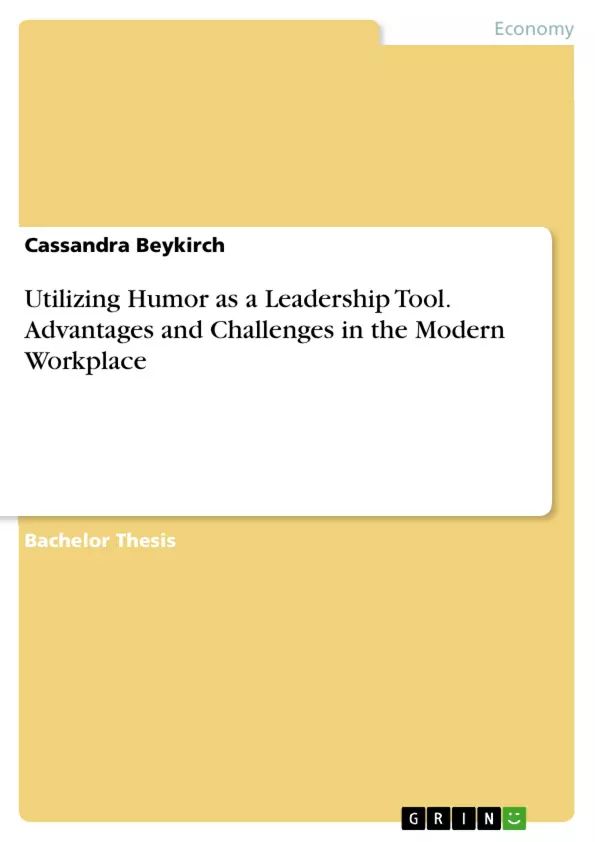This bachelor thesis delves into the use of humor as a leadership tool, analyzing its benefits and drawbacks. Through a comprehensive literature review, it explores the impacts of positive and negative humor styles in leadership, providing insights into how humor can be effectively leveraged to enhance work environments and the risks associated with its improper use.
Humor as a leadership tool is increasingly recognized for its significance in the modern workplace. This thesis offers an in-depth look into the role of humor in enhancing leadership qualities. Based on an extensive literature review, it aims to understand how humor can positively contribute to stress reduction, group cohesion enhancement, communication improvement, and the promotion of creativity and trust. Simultaneously, it addresses the potential risks associated with negative humor, such as increased stress and decreased well-being. The thesis underscores that the mindful application of humor as a leadership tool requires a delicate balance to maximize its positive effects and avoid adverse outcomes.
Inhaltsverzeichnis (Table of Contents)
- Introduction
- Problem Definition
- Method and Structure
- Humor
- The Nature of Humor
- Theories of Humor
- Different Humor Styles
- Stress
- The Nature of Stress
- Stress Models
- Stress in the Workplace
- Humor as a Leadership Tool
- Influence of Leaders on Followers
- Humor and Diversity in the Workplace
- Positive Effects of Humor as a Leadership Tool
- Negative Effects of Humor as a Leadership Tool
- Conclusion
- Presentation of Results and Answer to the Research Question
- Recommendation for Actions, Reflection, and Outlook
Zielsetzung und Themenschwerpunkte (Objectives and Key Themes)
This bachelor thesis explores humor as a leadership tool. It aims to investigate how humor can be used effectively in leadership, analyzing both its potential advantages and disadvantages. Through a literature review, the thesis aims to provide a comprehensive understanding of the application of humor in leadership.
- The nature and theories of humor
- The impact of humor on stress levels in the workplace
- The relationship between humor and diversity in the workplace
- The positive effects of humor as a leadership tool
- The negative effects of humor as a leadership tool
Zusammenfassung der Kapitel (Chapter Summaries)
The first chapter focuses on humor, exploring its nature and diverse theories. It delves into the concept of humor styles, examining their link to personality traits. The second chapter investigates stress, exploring its nature and models. It discusses the prevalence and impact of stress in the workplace. The third chapter delves into the potential of humor as a leadership tool, analyzing the influence of leaders on followers. It examines the role of humor in fostering diversity in the workplace and discusses both the positive and negative effects of humor as a leadership tool.
Schlüsselwörter (Keywords)
Key keywords and concepts explored in the thesis include: humor, leadership, leadership tools, humor styles, stress, workplace stress, diversity, positive and negative effects of humor, organizational culture, leader-follower relationship.
- Citar trabajo
- Cassandra Beykirch (Autor), 2023, Utilizing Humor as a Leadership Tool. Advantages and Challenges in the Modern Workplace, Múnich, GRIN Verlag, https://www.grin.com/document/1453633



